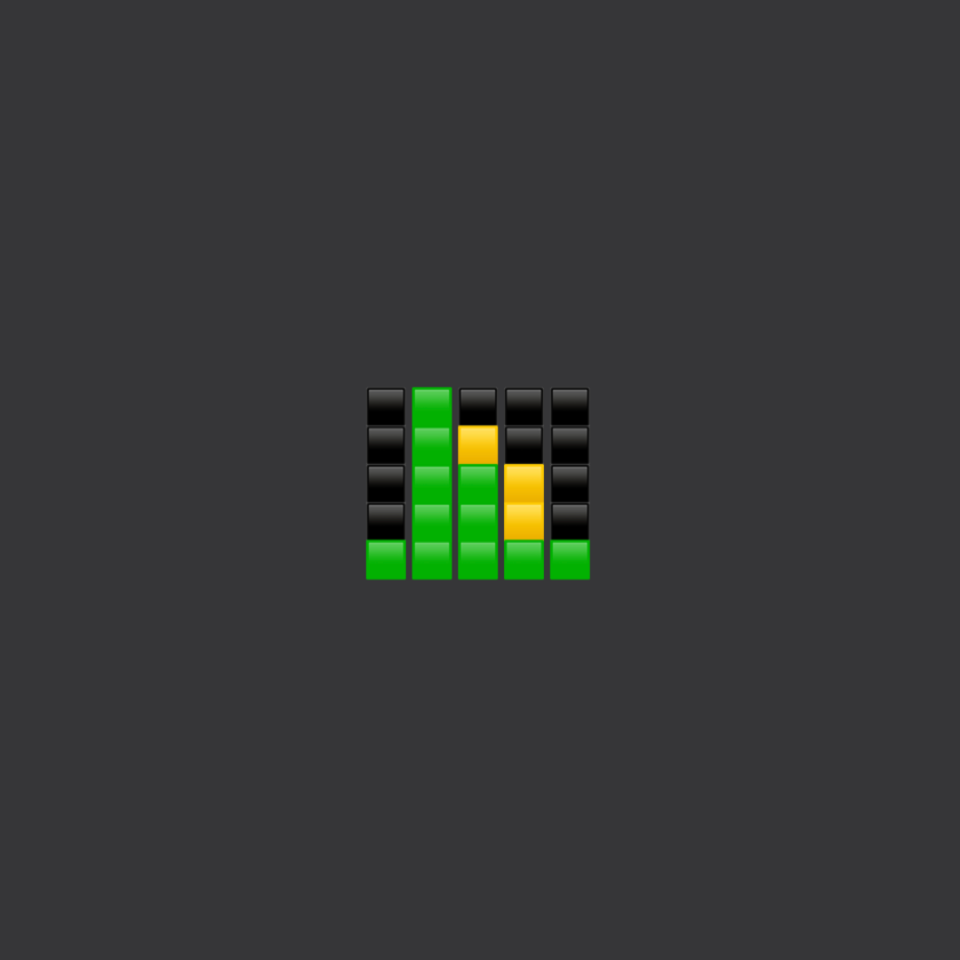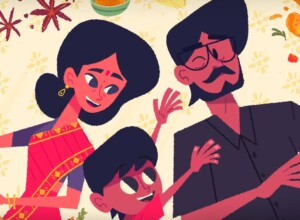In a talk at this year’s Game Developers Conference, Wordle creator Josh Wardle spoke about the game’s origins, development, and global success.
Wordle has become a phenomenon in a way that few videogames manage, achieving true mainstream ubiquity.
Creating a global hit was not the plan, however. In the GDC talk Wordle: Doing the Opposite of What You’re Meant To, creator Josh Wardle reflected on the factors that made the game a success and discussed the reasons behind its sale to the New York Times.
“I don’t think of myself as a game developer at all,” he reveals. “So I want to be upfront about that. Maybe what I’m sharing with you here is utterly naive, but I just want to share what my experience was.”
At every stage of development, Wardle felt he was making decisions that could be considered unpopular, or unwise. Even the simple act of making a word game went against current trends.
“When you think about viral, exciting games, you don’t think about word games, which is kind of sad to me,” he says. “I love words, and I love language. Not to get too MFA arts degree on you, but there is a quote that I love from a literary theorist Terry Ingleton. He says: ‘Language is the very air I breathe’.”
“The way I think about that in terms of a game is that if you make words a core mechanic, everyone has a deep, deep understanding of the most fundamental part of your game. You don’t have to teach them about words. They intrinsically know how words work.”
This foundation means a game like Wordle can appeal to a wide range of players. Its popularity was also helped by its simple, easy-to-learn rules. Wardle cites the popular code-breaking game Mastermind as an influence.
“I took Mastermind, and I mashed it up,” he reveals. “I said, what if you were guessing words instead of coloured sequences. And I came up with, basically, Wordle in 2013.”
Early prototypes of the game had key differences from the version that became a global sensation. The most obvious was that it was an endless play game, serving up a continual stream of five-letter words randomly picked from a pool of around 13,000. Although all 13,000 of these words were valid, some were too obscure, says Wardle.
“What’s fun about Wordle is that you can tease the answer out from what you know about language what the word can be,” he explains. “I had to filter these 13,000 words down to those that a player could reasonably [be expected to] know.”
Wardle initially attempted to whittle the list down using a letter frequency algorithm, but the results were unsatisfactory. To make this list workable, Wardle developed a whole other game that presented the list of 13,000 words, one at a time, with the option to say that you either knew it, didn’t know it, or maybe knew it. His partner played the game and, eventually, categorised every single word in the database.
“This doesn’t get talked about a lot when people look at Wordle and reasons it’s been successful. But that thing that you know when you are playing the game, that the answer’s going to be a word that you likely know, is really important.”
This is especially true for a first-time player, he says.
“If you come to the game and try and guess a hidden word, and it’s a word you’ve never heard of before, I think you’d feel like you were being cheated.”
Puzzling moves
In 2021, Wardle and his partner frequently played the New York Times crossword – a game he cites as being one of the best co-op game experiences – and Spelling Bee. Both have a significant feature that Wardle adopted: they can only be played once a day.
“I think this is something that you are not meant to do, especially with mobile games. I think that there this an expectation that you just give the person what they want, which is to play endlessly,” he says.
Wardle changed the game so you could only solve one puzzle a day. The decision was a defining factor in Wordle‘s virality.
“If you can only play once a day and if it was the same word for everyone, there was suddenly this social aspect to the game. You could talk to other people about your experience playing Wordle because you all played the same word on the same day. That ended up being a huge part of the game and something, frankly, that wasn’t intentional,” he admits.
Another seemingly ill-advised move to pay off was the decision to host Wordle on a website rather than develop a dedicated mobile app.
“You’re meant to make an app,” Wardle says. “You can do things with an app. You have your users captured, you can send them push notifications, all these things that I really wasn’t interested in.”
The benefit of hosting Wordle on a website was that it removed barriers to entry. Apps downloads, accounts, and paywalls were all replaced by a single link.
“Something I’ve reflected on after the fact is that Wordle is really shareable. You can just give someone the link, and they can play. This became especially important if you were sending it to a relative who wasn’t as literate, tech-wise. You knew they could just click on the link and play. And that played a big part in the game being able to spread,” he says.
“The other thing was that I had a really, really bad URL. The game was played at www.powerlanguage.co.uk/wordle. It was utterly absurd, and looking back on it now, a vanity URL would have been a bit better. “
Social connections
Initially, the game was just played by Wardle and his partner. Wordle was publicly available, but no one playing because no one knew it was there. Things changed when Wardle told his family about the game.
“Something really interesting happened with my sister-in-law. Her family has a group chat, and it had kind of died down. Wordle re-invigorated it somehow.”
This was despite Wordle lacking the social sharing function that is now key to its appeal.
Wordle was shared with more friends and family, slowly expanding its reach until it eventually received a small mention in the footnotes of a New York Times newsletter.
“Because of that, and for reasons I don’t really understand, it gets really really big in New Zealand,” says Wardle.
A New Zealand-based player was the first to start using emojis to share results, a technique soon copied by other users. Wardle implemented the feature into the game, making it quick and easy for users to share their results.
“What’s is interesting here is that previously, you would have this shared experience with Wordle. You were all playing the same word each day, but when you play Wordle by yourself, you go on a journey. There’s a series of steps. You think you’re going to get it, and then you don’t.”
Wardle says that the – now-iconic – emoji grid is a way for players to share that journey with friends and family.
Interest in Wordle picked up significantly after a New York Times article profiled Wardle and the game. Everyone from Paul McCartney to Monica Lewinsky was soon sharing their progress on social media. The green and yellow emoji grids flooded Twitter streams around the world, catapulting the game into the mainstream.
However, with success came a slew of copycats. Although many of these were well-intentioned or humourous reinterpretations of Wordle, some were opportunistic cash grabs. Wardle is reasonably pragmatic about this aspect, although it did play a part in his decision to sell the game.
Instead, he prefers to focus on the positive impact Wordle has had. He was heartened, for example, by the response from educators who use the game to teach children. And the story of a woman who raised the alarm about a family member after not receiving her daily Wordle update. It has also proved to be a platform of reconciliation for families and friends.
“We are more connected than ever, but people want for connection,” he says. “Wordle became this really lightweight way to check in with your friends or family and tell them that you love them without using big heavy words.”
Saying goodbye
And then came the sale to the New York Times.
The acquisition of Wordle took many observers by surprise, particularly as Wardle had publically stated that he wasn’t interested in monetising the game. Several factors contributed to his decision to sell.
“One was that I had no interest in running a games business, basically. I think of myself as an artist, and I enjoy creating things. Running a gaming business is not interesting to me,” he explains.
“I was making a game for my partner, and I wasn’t going to put ads on it. Even when it became really popular, I felt ‘Why can’t there just be a nice thing on the internet that people can play?'”
Selling to the New York Times also helped him walk away from the ongoing challenge of dealing with the unscrupulous companies releasing monetised – or advertising-based – copycats.
“I think the New York Times was a really good buyer for the game. I think they’ll be great stewards,” he says. “Their games play a really important part in the origins of Wordle, and I think they treat their players with respect. I don’t think they are going to cover the game in ads or anything.”
Given his personal ambitions, Wardle says this was the best possible outcome for him, the game, and its players.
Follow Thumbsticks on Flipboard, Facebook, Google News, and Twitter for more features and GDC coverage.






